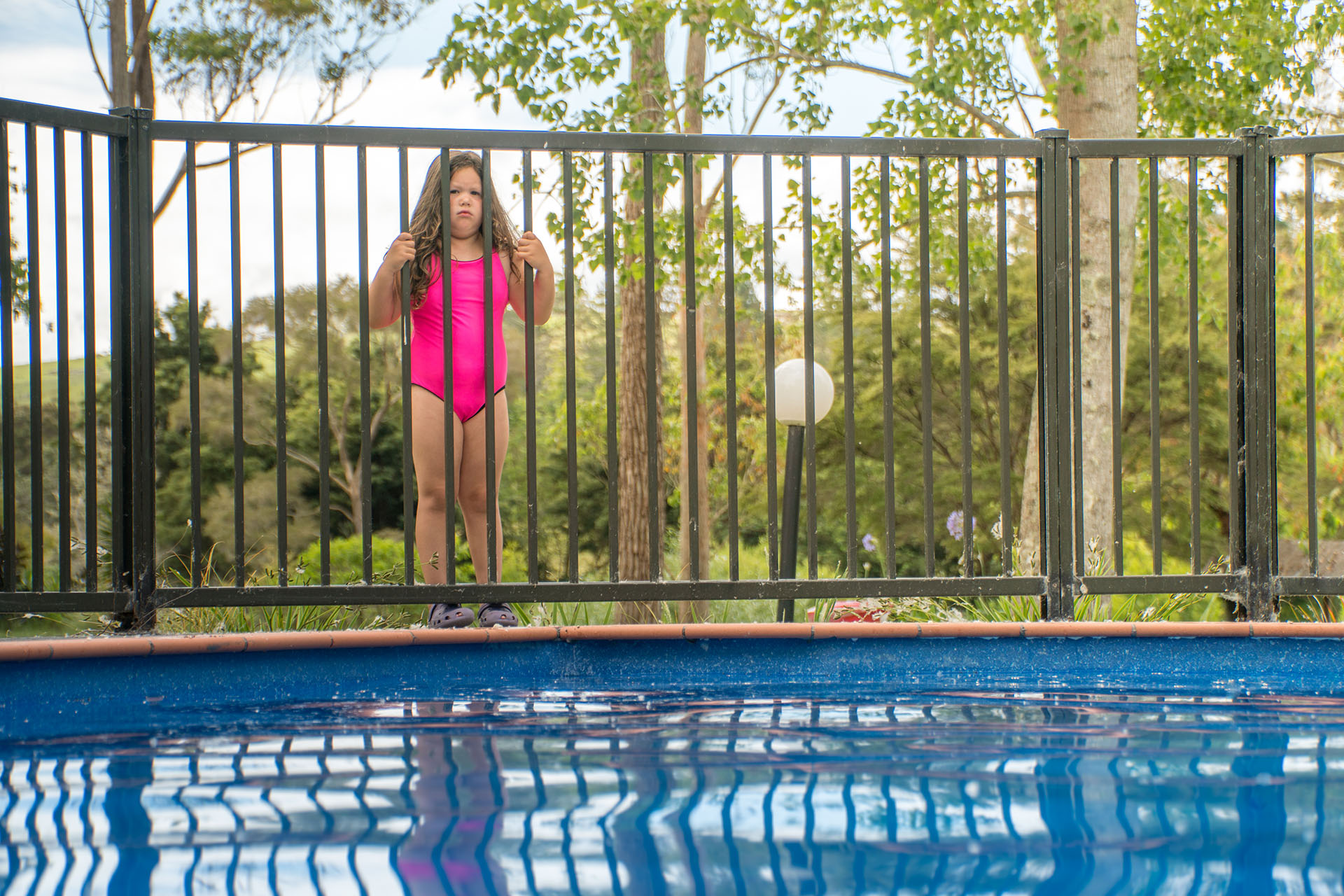In this article, “59. Pool Safety: The Importance of Fencing Regulations,” we will explore the significance of fencing regulations for pool safety. With the aim of educating readers on the importance of proper pool fencing, we will discuss the various regulations surrounding pool fencing, the benefits it provides, and the potential risks of inadequate fencing. By understanding the importance of complying with these regulations, readers will gain valuable knowledge on how to ensure the safety of their pools and protect the well-being of those using them. So, let’s dive in and explore the essential role that fencing regulations play in promoting pool safety.
Pool Safety: The Importance of Fencing Regulations
When it comes to pool safety, one of the key components to consider is the installation of a proper pool fence. Pool fences play a crucial role in preventing accidents and ensuring the safety of both children and pets around the pool area. In this article, we will explore the importance of fencing regulations, discuss different types of pool fences, cover height and material requirements, explain gate and latch requirements, touch on pool fence maintenance, highlight the use of pool safety alarms and covers, talk about the impact of pool fencing on insurance, emphasize the need for pool safety education and awareness, and address the enforcement of fencing regulations. By the end of this article, you’ll have a comprehensive understanding of pool safety and the importance of adhering to fencing regulations.
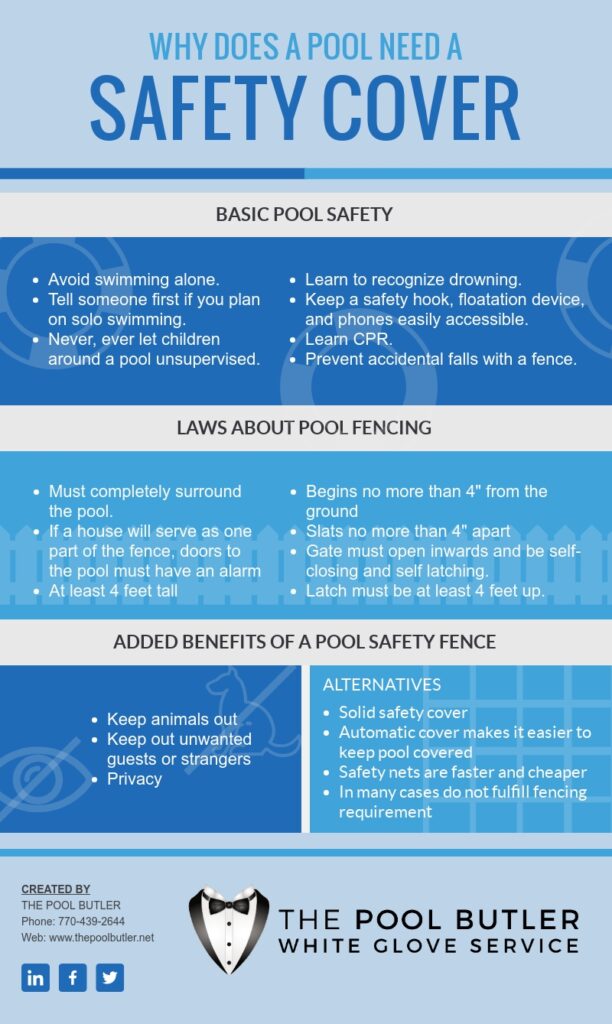
1. Introduction to Pool Safety
Pool safety is of utmost importance, especially when it comes to preventing accidents and drowning incidents. According to the World Health Organization, drowning is the third leading cause of unintentional injury death worldwide, accounting for 7% of all injury-related deaths. In order to prevent such tragedies, it is essential to have safety measures in place, including proper pool fencing.
2. The Role of Fencing Regulations
Fencing regulations exist to ensure that pool owners comply with specific safety standards and precautions. These regulations focus on preventing unauthorized access to the pool area, especially by young children. By setting guidelines for pool fence height, materials, gate requirements, and more, these regulations aim to minimize the risk of accidents and promote pool safety.
3. Types of Pool Fences
There are various types of pool fences available in the market, each with its own advantages and considerations. Some common types include:
a. Aluminum Fences
Aluminum fences are a popular choice for pool enclosures due to their durability and low-maintenance nature. They are resistant to rust and can withstand harsh weather conditions. Aluminum fences also offer a sleek and modern aesthetic, making them an attractive choice for pool owners.
b. Glass Fences
Glass fences provide an unobstructed view of the pool area, making them an ideal choice for those who prioritize aesthetics. They offer a contemporary and high-end look to any pool setting. However, it’s important to note that glass fences can be more expensive and require regular cleaning and maintenance to keep them looking pristine.
c. Mesh Fences
Mesh fences are a flexible and affordable option for pool safety. They are typically made of a strong mesh material that can withstand pressure, making them a reliable barrier. Mesh fences are also easily removable, allowing for flexibility when it comes to opening up the pool area.
d. Wrought Iron Fences
Wrought iron fences are a classic choice for pool enclosures. They offer both security and elegance to any pool setting. However, it’s worth mentioning that wrought iron fences require regular maintenance to prevent rust and deterioration.
4. Height and Material Requirements
Fencing regulations often specify the minimum height requirements for pool fences. The height requirement is typically set to prevent young children from climbing over the fence and gaining access to the pool area unsupervised. The specific height requirement may vary depending on local building codes and regulations.
When it comes to material requirements, pool fences must be constructed using materials that are strong, durable, and capable of withstanding various weather conditions. Common materials used for pool fences include aluminum, glass, wood, and vinyl.
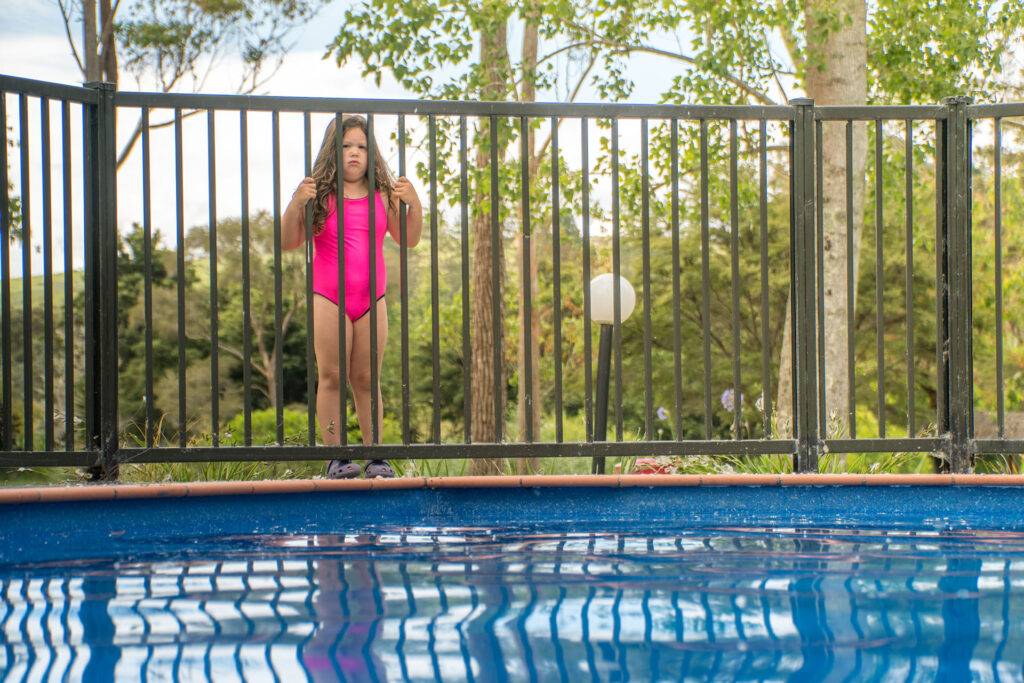
5. Gate and Latch Requirements
In addition to the pool fence itself, proper gate and latch requirements are essential for ensuring pool safety. Gate requirements often include a self-closing mechanism, which automatically closes the gate after it has been opened. This helps to prevent accidental entry and ensures that the pool area remains secure.
Latch requirements focus on the functionality and security of the gate latch. The latch should be positioned at a sufficient height to prevent young children from easily opening it. It should also be designed in a way that can be easily operated by adults but is difficult for children to manipulate.
6. Pool Fence Maintenance
Regular maintenance is crucial to ensure the effectiveness and longevity of a pool fence. Here are some maintenance tips to keep in mind:
- Inspect the fence regularly for any damage, such as loose screws or gaps.
- Clean the fence periodically to remove dirt, debris, and mildew.
- Check the gate and latch for proper functionality and ensure they are in good working condition.
- Replace any damaged or worn-out parts promptly to maintain the integrity of the fence.
By staying on top of maintenance tasks, you can ensure that your pool fence continues to provide the necessary safety and security.
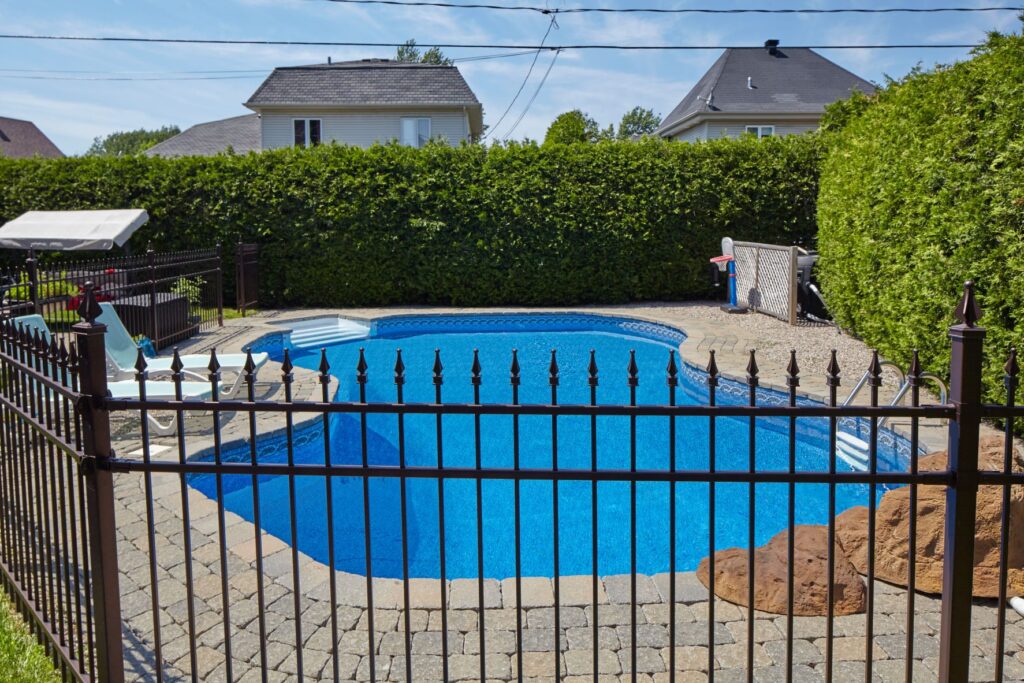
7. Pool Safety Alarms and Covers
In addition to pool fences, pool safety alarms and covers can provide an extra layer of protection. Pool safety alarms are designed to alert homeowners when someone enters the pool area, providing an additional level of vigilance. These alarms can be installed on both gates and pool surfaces.
Pool covers, whether manual or automatic, can help prevent accidental entry into the pool and also serve as a barrier to keep debris out. It’s important to choose a pool cover that is specifically designed for safety purposes and meets stringent safety standards.
8. The Impact of Pool Fencing on Insurance
Installing a pool fence can have a positive impact on your homeowner’s insurance. Insurance companies often view pool fences as a safety measure that reduces the risk of accidents and injuries. As a result, homeowners who have compliant pool fences in place may be eligible for lower insurance premiums.
It’s important to check with your insurance provider to understand their specific requirements and any potential discounts or benefits associated with having a pool fence installed.
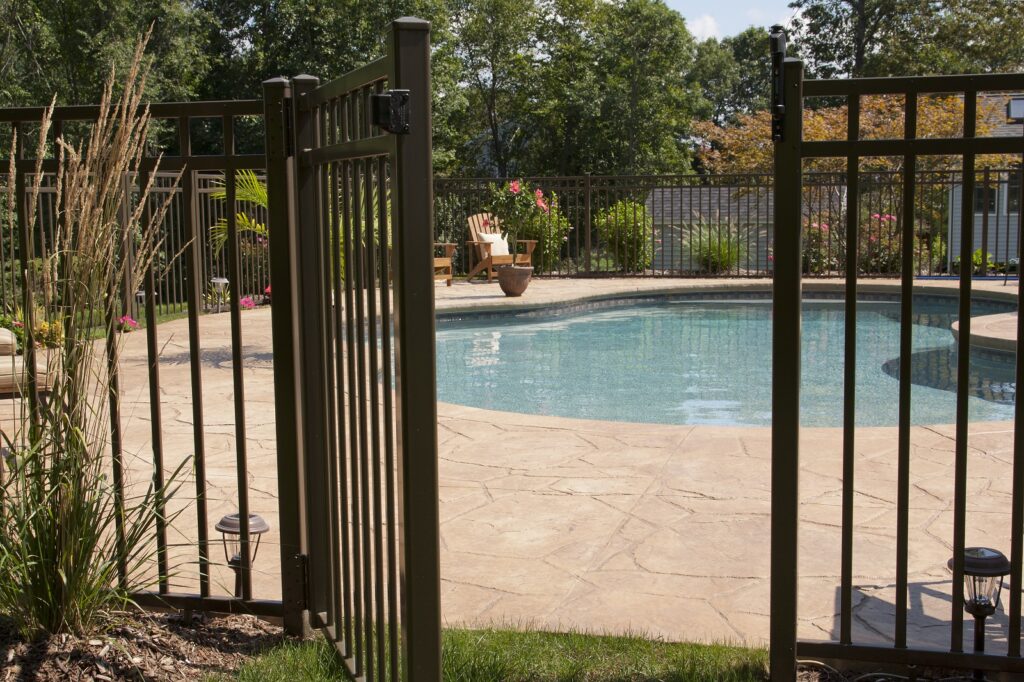
9. Pool Safety Education and Awareness
While pool fences are essential for preventing accidents, it’s equally important to educate yourself and others about pool safety. This includes:
- Supervising children at all times when they are near the pool.
- Teaching children how to swim at an early age.
- Providing life-saving equipment, such as life jackets and flotation devices.
- Enrolling children in swimming lessons and CPR courses.
By promoting pool safety education and awareness, we can further reduce the risk of accidents and create a safer pool environment for everyone.
10. Enforcing Fencing Regulations
Enforcing fencing regulations is crucial to ensure compliance and maintain pool safety standards. Local authorities, building departments, and homeowner associations may conduct inspections to ensure that pool fences meet the necessary requirements. Non-compliance with fencing regulations may result in penalties or fines.
By strictly enforcing fencing regulations, communities can work together to prioritize pool safety and protect their residents, especially children, from potential accidents and drownings.
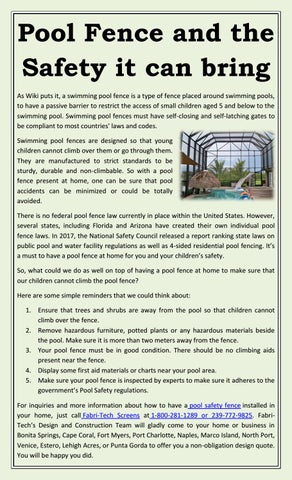
11. Conclusion
In conclusion, pool safety is of utmost importance, and having a proper pool fence is a key component of ensuring a safe environment. Fencing regulations outline specific requirements for pool fences, including height, materials, gates, and latches. By adhering to these regulations, homeowners can create a secure pool area and significantly reduce the risk of accidents and drownings.
Pool safety education and awareness, along with the use of pool safety alarms, covers, and regular maintenance, further enhance the safety measures surrounding pools. Additionally, installing a pool fence can have a positive impact on homeowner’s insurance premiums.
By prioritizing pool safety, enforcing fencing regulations, and promoting education, we can create a safer environment for everyone and prevent tragic accidents. Remember, a pool fence is not only a legal requirement but also a responsible choice that can save lives.
10 Common Questions about Pool Fences:
- Are pool fences required by law?
- What is the ideal height for a pool fence?
- Can I use a regular fence as a pool fence?
- Are there specific materials that are recommended for pool fences?
- Do pool fences need to have self-closing gates?
- Are there pool fence options that won’t obstruct the view?
- How often should I inspect and maintain my pool fence?
- Are pool safety alarms necessary if I have a pool fence?
- Can I use a pool cover instead of a pool fence?
- Will having a pool fence affect my homeowner’s insurance premium?
| Fence Type | Pros | Cons |
|---|---|---|
| Aluminum Fences | Durable, low-maintenance, resistant to rust, and can withstand harsh weather conditions. | May lack privacy depending on the design and spacing between panels. |
| Glass Fences | Provides an unobstructed view of the pool area, contemporary and high-end look. | More expensive compared to other fencing options, requires regular cleaning and maintenance. |
| Mesh Fences | Flexible, affordable, easily removable. | May not provide the same level of security as other fence types, may not be as aesthetically pleasing. |
| Wrought Iron Fences | Classic and elegant, provides security. | Requires regular maintenance to prevent rust and deterioration. |
| Wood Fences | Natural aesthetic, can be customized to fit various styles. | Requires regular maintenance, can be prone to rot and decay if not properly treated. |
